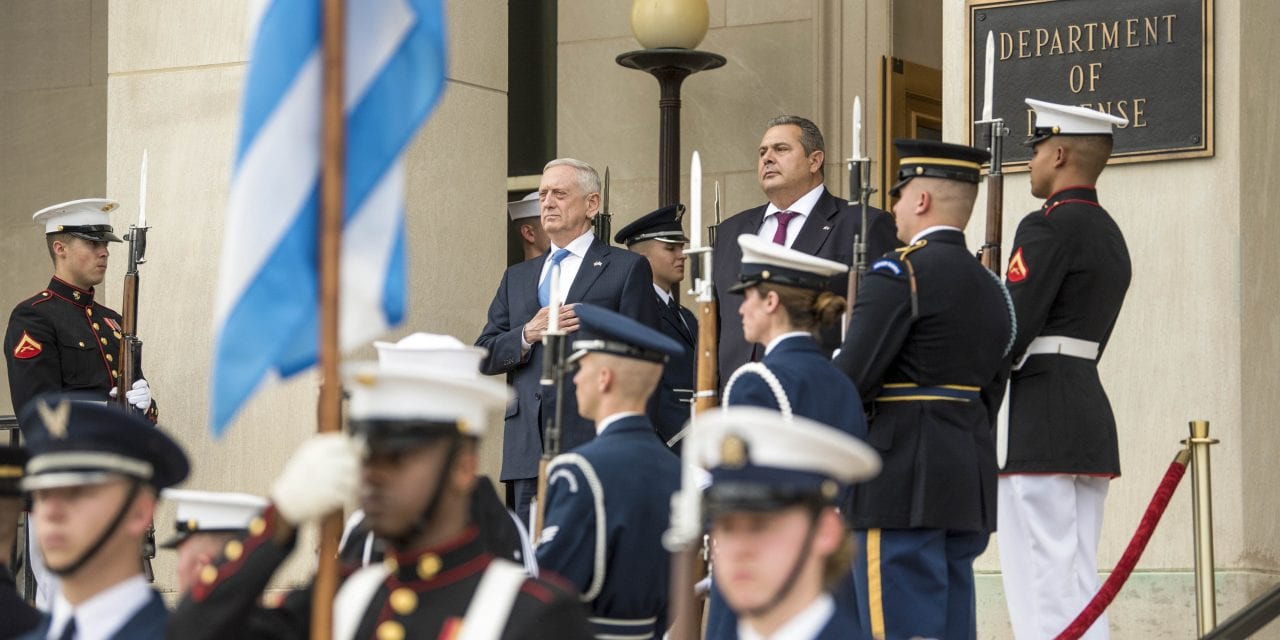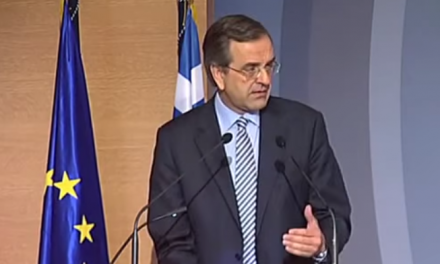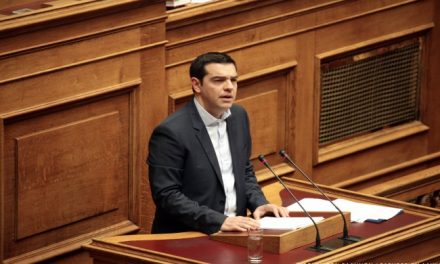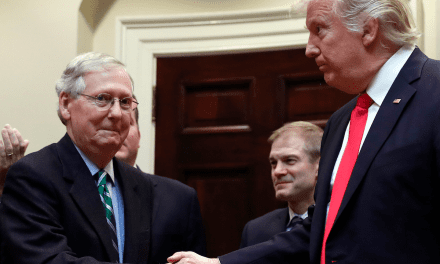Defense Minister again at odds with SYRIZA coalition partners
Greek Defense Minister Panos Kammenos displayed to his American interlocutors a total lack of policy coordination within his country’s coalition government when he proposed to replace the Prespes Agreement, designed to resolve the Name Dispute between Greece and Macedonia/FYROM, with a new Balkan alliance to thwart Russian activity in the region, a move that Kammenos believes would hopefully satisfy Washington’s primary regional concern.
Kammenos’ proposals to high-level US officials unleashed a firestorm in Athens, bringing his coalition agreement with Prime Minister Alexis Tsipras into question as well as any serious Western efforts to work with Greece until the next elections take place, due before September 2019.
Meanwhile, in Skopje, Prime Minister Zoran Zaev continues his work to assemble the required 2/3 majority of his country’s parliament needed to pass the constitutional changes required by the Prespes Agreement. There are some claims in the local media that Zaev is making progress, but failure to bring a sufficient number of opposition parliamentarians on board will require him to call new parliamentary elections if there is to be any hope of keeping the Prespes deal afloat, having had its viability seriously brought into question by the low turnout in the September 30 referendum.
Kammenos’ Washington remarks had not been coordinated or approved
While in Washington, Kammenos used his senior-level meetings at the Pentagon and State Department on October 9 to make two headline-grabbing proposals. He met with Secretary of Defense James Mattis and Deputy Secretary of State John Sullivan and proposed the creation of a new Balkan military alliance to combat Russian influence in the region as well as a significant expansion of base rights for the US military in Greece. The base rights issue is not particularly controversial in view of the favourable public view of the US at the present time, but the matter has not been properly fleshed out.
The same cannot be said for Kammenos’ planned regional defence alliance that would include Greece, Macedonia/FYROM, Albania, Bulgaria, possibly later possibly Serbia. Most observers immediately identified this idea as a sort of “Plan B” in the event the Prespes Agreement is not implemented.
Reaction from officials in Athens to the news from Washington quickly confirmed Kammenos was operating as a form of foreign policy “lone ranger” not having taken the issue up with the Greek Foreign Ministry or higher officials. Reacting to the criticism at home while still in the US, Kammenos explained that he had simply discussed with “friends and allies an alternative, realistic solution” and declared he had no intention of making decisions independently of the government.
Policy circus in Athens undermines Greek credibility as a regional stabiliser
The Greek coalition government comprised of SYRIZA and the Independent Greeks (ANEL) party has long faced a painful internal schism over the Name Dispute, with ANEL leader and Defense Minister Kammenos remaining staunchly opposed to the Prespes Agreement and sworn to block its ratification if it comes to a vote in the Greek parliament.
Knowing what has transpired over the last days, one would surely not like to be known as having recommended that Kammenos be given this latest round of high-level Washington meetings, but it appears American officials thought it worth investing the time to try to keep Kammenos from torpedoing the Prespes Agreement if it ever arrives at the Greek parliament next year.
Foreign Minister Nikos Kotzias enjoys a strained relationship with Kammenos in large part due to their opposing views on the Prespes Agreement. Downplaying his rival, he said, “A foreign affairs minister must not talk too much in order to be heard when he does talk.”
Former Alternate Foreign Minister Nikos Xydakis, currently SYRIZA parliamentary representative, said Kammenos “is damaging the government and the national effort to diplomatically upgrade the country … and efforts to rejuvenate the country with a healthy public sector and a production framework that keeps our children here and prevents our homeland from a demographic shrivelling.”
Many are asking why Tsipras has not reacted to Kammenos latest moves, something that under former PM Andreas Papandreou or other PASOK leaders would have brought a swift rebuke if not worse. Many analysts believe the current “truce” between Tsipras and Kammenos, which was agreed in September, will continue through March 2019, in large part due to Tsipras’ need for Kammenos’ support on key pieces of legislation that he hopes to pass before elections are held – with most now predicting May 2019 will be the time frame for elections, assuming developments related to the Prespes deal do not precipitate earlier actions.
The opposition is having a field day with Kammenos’ antics, as expected, but has not turned its ire on the US for offering Kammenos a set of high-level encounters at the State and Defense departments.
Greece’s main opposition party New Democracy is widely favoured to win the next elections, whenever they are held. New Democracy President Kyriakos Mitsotakis said, “the only thing again confirmed is that Tsipras and Kammenos only care about staying a little bit longer in their respective offices, and that’s why one tolerates the blackmail of the other. Our country, however, continues to lose power, seriousness and credibility; we’re being ridiculed around the world,” he later amplified, “at a time when the main thing the country needs is to restore its credibility in every area, the government is coming across like a backwater theatre troupe.”
Ratification work proceeds in Macedonia/FYROM
In Skopje, the pervading sense of gloom felt immediately after the low-turnout referendum on September 30 seems to have abated. Zaev and his allies have pushed diligently to keep the Prespes Agreement ratification process alive, viewing snap elections as a last resort. Accordingly, the procedure for changing the constitution was launched on October 10 with a parliamentary committee-level discussion of the proposed changes. The plan is to complete this debate rapidly and to bring the changes to a plenary session in the coming week. Going into this debate Zaev’s coalition controlled 71 of the required 80 MPs needed for passage.
The low turnout for September’s referendum served to stiffen the resistance of the main opposition VMRO-DPMNE party to any compromise, with its leaders declaring the Prespes Agreement dead as of the date of the referendum. Even before the referendum, garnering the 2/3 majority in the country’s 120 seat parliament was seen as Zaev’s main challenge.
Over the last week, there have been backroom discussions and various attempts at horse-trading, with an array of scenarios that link ongoing prosecutions of VMRO-DPMNE deputies for corruption to their willingness to cooperate with Zaev on the constitutional changes vote.
Rumours circulated on October 11 that Zaev had been able to pull together the number of votes needed for passage, but VMRO-DPMNE spokespeople quickly disavowed this. The opposition has also focused intense fire on the US and EU for continuing intervention in political developments in Macedonia/FYROM, meaning quiet foreign support for Zaev’s vote-gathering efforts.
Curious timing of US leaks about Russian activity
In the background, it is curious that this week also saw a leak by US officials of formerly tightly-classified information about attempted Russian manipulation of the referendum in Macedonia/FYROM using Greek (and Russian) oligarch and football team owner Ivan Savvidis as a financial and organisational conduit.
Reporting in the New York Times confirmed on October 9 that the US had released information to Tsipras in July that triggered the expulsion of two Russian diplomats and a freeze on the entry of two more. Prior to this, the Greek government had steadfastly refused to discuss how it learned that it needed to act to limit Russian activity regarding the referendum. However, no direct action has been taken against Savvidis who enjoys a warm relationship with the SYRIZA party and continues to expand his business operations in northern Greece, including strategic sectors such as the Thessaloniki port.



















